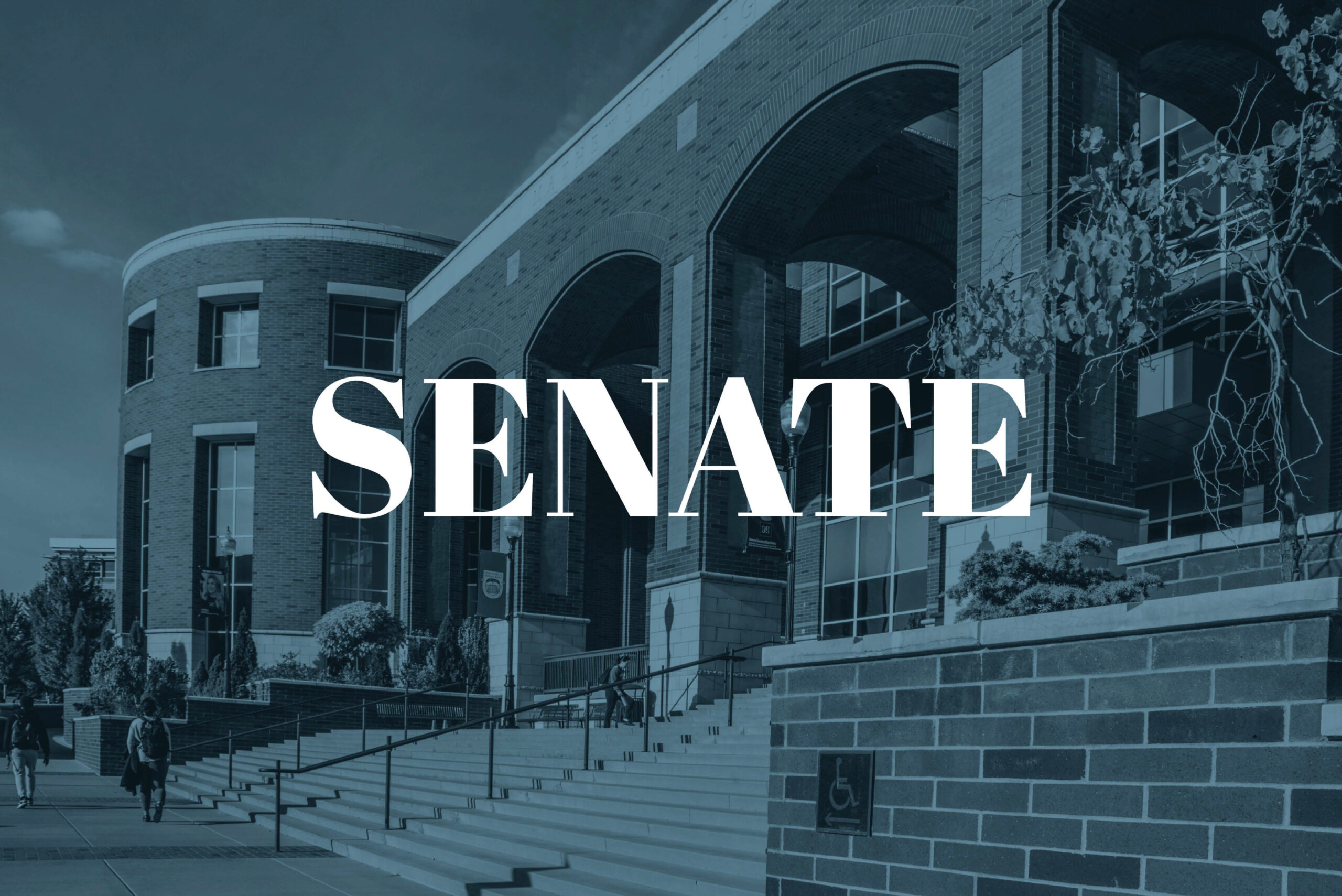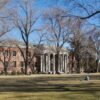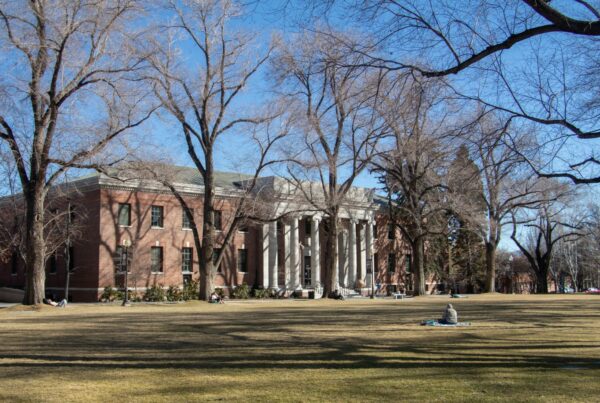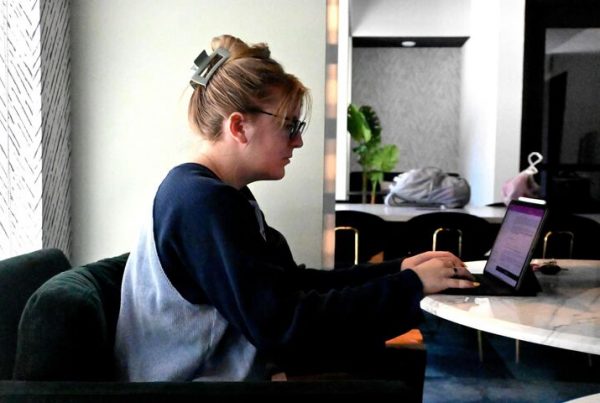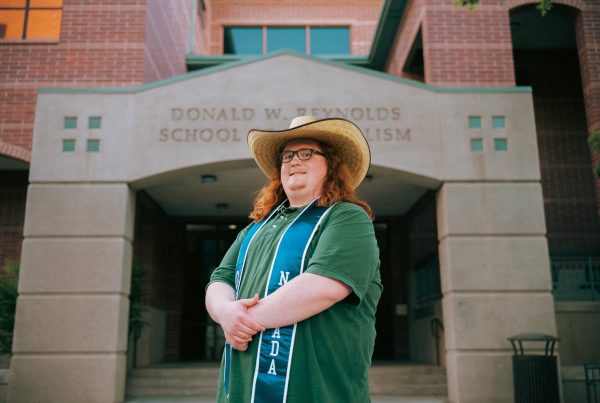Editor’s Note: The Nevada Sagebrush was directly involved in the creation and support for the student media credit fee, so only quotes of discussion and brief information about this bill have been provided. To listen to the whole conversation, visit the meeting’s audio minutes.
The Associated Students of the University of Nevada Reno met for one last meeting on Dec. 13 before the start of winter break.
Staff commemoration
Shannon Ellis, former vice president for student services, announced her final meeting at the ASUN senate in which she was awarded an informal bill announcing her accomplishments and 25-year tenure.
S.B. 91- A Bill To Financially Support Student Media Via A Credit Fee
The bill to financially support student media via a credit fee was brought to the table to be fast-tracked through the senate. The decision to fast-track the legislation will make it possible for the question to appear on the student ballot in March 2024.
The proposed credit fee is 1.29 dollars per credit, which will generate nearly $700,000 for each of the four student media groups, including The Nevada Sagebrush, Wolf Pack Radio, Brushfire Literature and Arts Journal and Insight Magazine.
The fee will also fund a full-time Center for Student Engagement’s staff position to serve as the student media coordinator. The position is currently held by Sogan Tabatabei.
Previously, the 67 cent per-credit fee was proposed as a ballot question in March 2023. The question required two-thirds votes, failed, but still received a majority of votes. The University of Las Vegas put forth a 24 cent student media credit fee in 2022, which was passed through the Nevada System of Higher Education’s Board of Regents in December 2022. This fee was only 24 cents since it only funded one student newspaper.
To view the entire piece of student legislation, including the specific divide of how much finances go to where, click here and to view a larger in-depth background of the proposed fee, click here.
During public comment, there were 20 commenters in support of the bill. Here are the names of the commenters:
- Emerson Drews, the executive editor of The Sagebrush
- Patrick File, professor of the School of Journalism
- Jaedyn Young, news editor of The Sagebrush
- Peregrine Hart, the arts and entertainment editor of The Sagebrush
- Madison Kitch, a staff member of Brushfire Literature and Arts Journal
- Evan Robinson, advocacy director of the ASUN
- Nick Stewart, assistant news editor of The Sagebrush
- Carmina Aglubat, a student of the university
- Zoe Malen, photo editor for The Sagebrush
- Jace Ouchida, the art director for Insight Magazine
- Clayton Posey, photographer for Insight Magazine
- Yazmine Tirado, copy editor for Insight Magazine
- Cole Carley, student of the university
- Aria Frey, copy editor for The Sagebrush
- Claudia Cruz, professor of the School of Journalism
- Richard Bednarski, IT systems manager of the School of Journalism
- Jim Scripps, professor of the School of Journalism
- Alison Gaulden, professor of the School of Journalism
- Hannah Villegas, copy editor for Insight Magazine
- Lizzie Ramirez, graduate student and former news editor of The Sagebrush
During executive reports, Hannah Alquiza, vice president of the ASUN; Arthur-James Okwuosa, director of IDE; and Olivia Ngo, director of campus and public relations gave their support for passing the student media credit fee bill.
The piece of legislation was fast-tracked and then discussion began after a presentation from Drews, the executive editor of The Sagebrush.
Leaf Acklin, senator of the College of Liberal Arts said he personally does not want to have to pay the fee, but he noted that students are coming in “droves” to public comment to support and pass this bill, so they have the opportunity to have “a voice at the table.” He said this would give students the ability to vote on the ballot about it.
“We need these programs. That’s what runs this university,” said Makayla Mirth, senator for the College of Business.
Mark Meiszburger, senator for the College of Business, said he did not support the fee. He said they should work on lowering fees instead of raising them, emphasizing that the presentation from Deal showed that students’ number one issue was for finances.
Emma Doty, senator for the College of Science, said she was against student fees. Doty noted that they were voting for a bill that lets the voters decide if they are willing to pay for this fee.
“I know it’s their voice, but they also elected us here at this table to be their voice and to save them the time from having to decide if they want to pay more. [Students] don’t. It’s clear as day. We just saw a presentation on it,” said Joel Martin, senator for the College of Liberal Arts. “I’m not for new student fees … I am your voice at the table and I am trying to safeguard you from getting 20 dollars added to your tuition.”
Mirth debated this by saying this bill is giving them “an individual chance” to get their voice on the table. “If we put this on the ballot, is one extra question going to hurt them? If they decide they don’t want it, then they don’t want it,” Mirth said.
Other senators along with Mirth, including Acklin, Aween Ali, senator for the College of Engineering, Juliana Girardello, parliamentarian and senator for the College of Public Health said they didn’t want fee increases, but they said they wanted students to get the opportunity to vote on the bill.
The bill passed with majority ‘yes’, following one ‘no’ from Martin. The ballot will be presented on the March 2024 ballot for the ASUN elections in the spring.
ASUN government affairs presentation:
The Department of Government Affairs for the ASUN presented data from its 2023 priorities and issues assessment and survey. Liesel Kemmelmeier, the assistant director of government affairs, and Dawson Deal, the director of government affairs, said the survey was distributed to a sample of 4,200 which is 27 percent of the 15,456 undergraduates at the university.
The survey was emailed 3 times and texted to the students once if there was no response. There were also prize incentives offered. They received 19 percent more responses than other previous surveys, equalling out to almost 800 respondents.
The number one issue was financial issues for students. Roughly 74 percent of students who answered the survey found this to be the biggest concern, and 58 percent said tuition and fees were their main concern. Many students wanted the ASUN to advocate for lower tuition and fees, housing and parking, but they did say they don’t think ASUN can do much about it.
More scholarships, internships, free parking days, food vouchers and support for Pack Provisions were suggested for ASUN to financially support students.
The second issue was career development for 41 percent of the students who answered the survey and 33 percent were interested in career connections and networking. Students wrote that they wanted to see ASUN advocate for more internships and networking and real world experiences in their field.
The third issue was health and wellness, safety and security for students, with 28 percent claiming it was a concern. Mental health access was a concern for 21 percent of students and sexual assault prevention was 15 percent. The fourth issue was representation and inclusion for 23 percent of the survey respondents.
Deal said, from his experience, he has never seen a survey go out like this before and believes it’s beneficial for the student government to get directly associated with the needs of their student constituents.
Jaedyn Young can be reached at jaedynyoung@sagebrush.unr.edu or on Twitter @jaedyn_young3.

